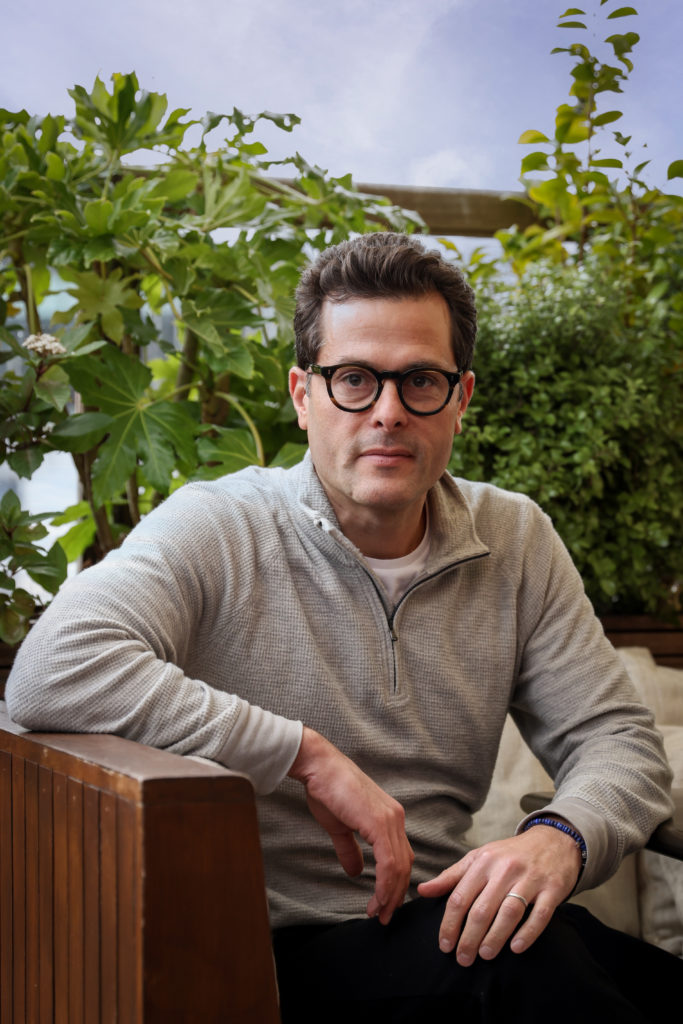13
LLUÍS SERRA
MD & CEO AT EUHT STPOL PRESIDENT OF EUHOFA



My name is Lluís Serra and I am currently Managing Director and CEO at EUHT StPOL – Sant Pol School of Hospitality and Culinary Management in Barcelona and President of EUHOFA International.
I started my formal career in hospitality in the US. In fact, I was raised in a touristic area by the beach in the Barcelona region, and since I was a teenager, I did summer jobs in nearby hotels, gathering experience in operations. When I turned 17, I was admitted to Cornel University’s School of Hotel Administration in New York, at the time, the best university in hospitality in the world, while hotel schools in Europe did not offer bachelor accreditation yet. In the US I had the chance to work in two beautiful boutique hotels. It was in the 90s and by then, the following naming did not even exist yet. The first one was Casa Madrona, in beautiful Sausalito, the first tiny village across the Golden Gate Bridge driving from San Francisco. There, I learned that F&B operations work very differently across the Atlantic Ocean, compared to the Mediterranean countries. Later on, I moved to the Rooms Division Department at The Raleigh in South Miami Beach. An amazing art deco hotel with the most beautiful pool in South Florida, and I would say, in the whole world. At the time, it was the coolest hotel in South Beach where actors, actresses, and singers used to stay during the South Beach “Renaissance”. When the area was an authentic phenomenon, right before the high-rising buildings took over the island. Recently, I have just discovered that it nowadays is a Rosewood hotel.
Maybe we are more passionate about gastronomy and sometimes we may have – let’s say – a more romantic approach to service and good quality cooking.
In Europe, people gave more importance to food and beverage in general. Maybe we are more passionate about gastronomy and sometimes we may have – let’s say – a more romantic approach to service and good quality cooking. In the US, business is a priority, and the customer has another expectation about food. I must say that 30 years later, this has changed on both sides.
The hotel industry is changing around the world; more hotel properties are affiliated with hotel chains. Also, hospitality companies are becoming more globalized. For instance, hotel groups from Spain can now be found in many countries, and not just in beach resorts as they used to be in the past. Now they can be found in many cities worldwide: RIU, Barceló or Meliá are good examples of such. Luxury properties are also growing as they never did before. While the world economy is going through uncertainty, demand for this type of hotel increases all around the globe, especially from emerging economies from various geographical regions. Thriving as an independent hotel has never been as hard as it is today in a highly entangled globalized world where branding has become so important.
Experiences are now paramount in all types of hospitality and leisure activities, especially in the luxury market, especially since today, the word ‘luxury’, has become related to uniqueness and exclusivity. Thus, creating experiences is one of the key aspects when reviewing the curricula of hotel schools. At EUHT StPOL, we are including them in the new bachelor’s and master’s programs that are about to start, related to both hotel management and culinary arts.
Sustainability is another aspect that is critical. It has different perspectives, approaches, and levels depending on the circumstances, priorities, and sensitivity of every country. The current generation of students demands it, and hospitality and culinary schools must be aware of it. In our case, this subject is becoming more and more important year after year and is gaining a presence in our curricula.
25 years ago, I joined EUHT StPOL in marketing, admissions, and public relations. I later gained a managerial position, which I am holding until now, as Managing Director and CEO.
Our idea was to offer programs in hotel management and culinary arts with a Mediterranean or Mediterranean-European flavor.
EUHT StPOL’s beginning lies in the 1960s as a local training school, when Tourism started to be important in Spain, helping the country’s economy and image by opening to the world during the difficult times of dictatorship. The region was increasingly receiving more tourists, but there was no proper training in Tourism and Hotel Management to offer them high-quality service. EUHT StPOL became Spain’s first hotel management school, and later on, Europe’s first postgraduate in Culinary Arts was launched. In fact, we are probably Europe’s first university hotel school with its own training hotel.
Nowadays, we have around 250 students and 40% of them come from abroad, adding up to 40 different nationalities on our campus. We have our own training hotel where students practice with real guests, always supervised by our professors. This also makes us like a little big family where students feel the university is their real home, as they temporally leave their families to be trained in Catalonia and Spain. We are proud to say that considered one of the reference schools not only in Spain but in Southern Europe and the Mediterranean regions.
In the past, we offered courses in Spanish only. Our international students usually came from Latin America, but about 15 years ago, we decided to offer a master’s in English, and this has changed everything in our minds. When you offer classes in English, you can also attract students from Syria, Russia, Taiwan, or India. In short, from any given country. The question is: how do we motivate them to go to us and not to France nor Germany nor Switzerland or the United States?
Our idea was to offer programs in hotel management and culinary arts with a Mediterranean or Mediterranean-European flavor. The most unique experience that we can provide here is the importance of food and beverage and good service. We have one of the best culinary cultures in the world, in Catalonia and throughout Spain. Students come here from all over the world to learn the techniques. In fact, Catalonia has just been awarded recognition as the 2025 World Region of Gastronomy.
Because the great thing about working in hospitality is not that you will be traveling around the world – you will have the chance to live in different places and plunge into different cultures.
Another thing that must be considered is that you have to make sure that there must be a continuation of all the teaching and learning outside the school. This need can be perceived in society at many levels. For instance, you may have excellent culinary schools in a country where gastronomy may not be seen as a cultural agent for the local population. So you could be learning culinary basics in class, but then you may end up eating fast food, for instance. That is not the case in Spain, while we have pizzas and burgers, you can also enjoy traditional Spanish food in restaurants. In Catalonia, we have 53 Michelin-starred restaurants, and our students are using this outlook to get valuable experience.
I always recommend that students get international expertise. They come back with an international mindset, which is key. Because the great thing about working in hospitality is not that you will be traveling around the world – you will have the chance to live in different places and plunge into different cultures.
I try to be involved in the industry placement process of our last-year students. The first thing I tell them is to do whatever makes them happy and to find a job that they will enjoy. There are no bad students and no bad companies. Sometimes one student can succeed in one company and could fail in another. It is important to find the right company for the right type of students – matching their personal and professional traits with those of the company. So, self-awareness is something that makes a successful student. Other features are commitment, attitude and empathy. The latter is something that we all need in our sector.
Self-awareness is something that makes a successful student. Other features are commitment, attitude and empathy.
As a kid, I grew up in the hotel business. I don’t know if I can say it is in my genes or in my blood, but it has always called my attention. With this background, you either love hospitality or you hate it. In my situation, I loved it and still love it.
I loved it and still love it.
Even though our core business at EUHT StPOL University is education, we also operate our little independent hotel, as mentioned earlier. Therefore, we fully understand the industry from the inside, compared to other concepts of hospitality education. We are a school that is really committed to the industry. We don’t just want to offer contents that students want to study. We want to offer a successful and realistic career to our students.
Nowadays, sometimes, there are some cool and fun things to study in all kinds of fields, but finding a job is not going to be an easy task for these graduates. On too many occasions, whoever designs academic programs does not have work placement as a priority. We may be a little bit conservative at times, but with whatever program we offer, we want to make sure that the industry is going to appreciate it and that the students are going to be qualified to get hired and promoted.
To ensure this, we are continuously talking to our alumni, with industry professionals both at a local and corporate level to assess different points of view. We do also value advice from colleagues at other international hospitality schools. We are aware of what’s going on around the world within the hospitality industry and education sector, but also we want to offer a service with our own flavor.
Being a member of EUHOFA International has definitely helped us to position ourselves on the map with an international perspective.
Being a member of EUHOFA International has definitely helped us to position ourselves on the map with an international perspective. Every year, the directors of hospitality schools and universities meet at our annual congress in a different country. We have the chance to extend our network, share best practices and learn from the hosting university, their country, and their way of teaching hospitality. I’ve been lucky to be part of this great association for 25 years now, and I am proud to have become its president three years ago. I’ve had the chance to visit some of the best schools from Australia to Switzerland, Mexico, all over Europe, and soon Singapore, where my mandate will come to an end.
EUHOFA is fully linked to the beginning of my career at EUT StPOL. My first important project was to organize the annual EUHOFA congress as the congress Secretary in Barcelona. Years later, I was invited to join the board and another few years later I was even proposed to be the president. The congresses are an important part of our work at EUHOFA. We always do a mix of work sessions and sightseeing related to hospitality with local accents. Usually, the congress organizers propose a theme related to their culture and then set activities related to hospitality, that reflect it. In February 2023, in Mexico City, the theme was humanism applied to hospitality education. In the beginning that appeared a little bit awkward for me, but it made me realize that this topic is very important these days. AI is developing so quickly that it is bringing up relevant questions about the role that humans will have when carrying out jobs in the future. Obviously, it was done with a Mexican flavor, lots of good Mexican culinary experiences, culture, and anthropology. Another key thing about these events is that we have a chance to share time with members from all around the world. Sometimes all together, sometimes on an individual basis. You can share and exchange experiences with many different colleagues, who over time become friends.
You can always learn new things.
This exchange – learning from others- has been helping us to make changes in the school and to become an international reference. You can always learn new things. Maybe, sometimes you cannot copy something from one country or institution and paste it into another. But you can adapt it to your situation or to your scenario. This is such a positive driver for our sector, and it is what makes EUHOFA so relevant.





